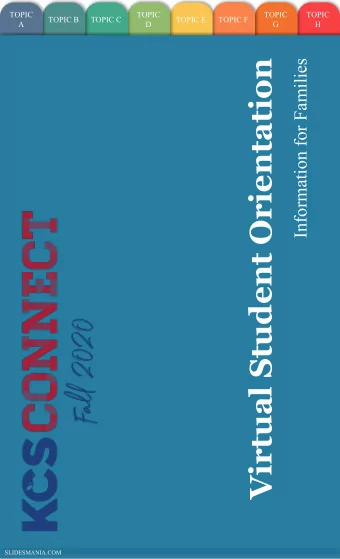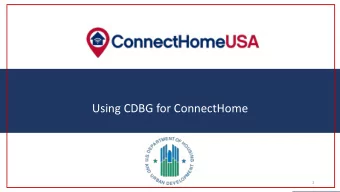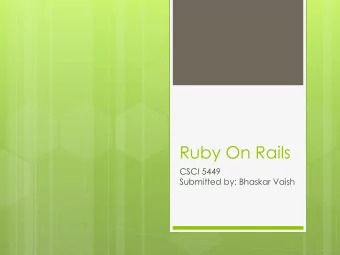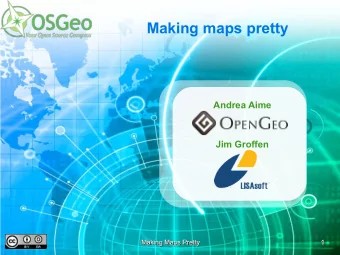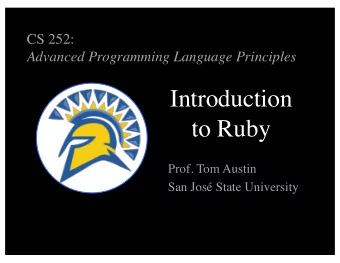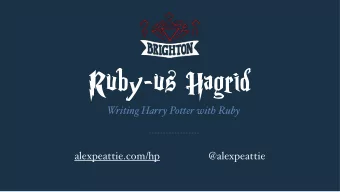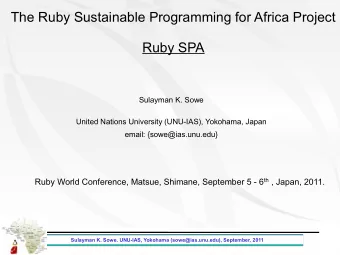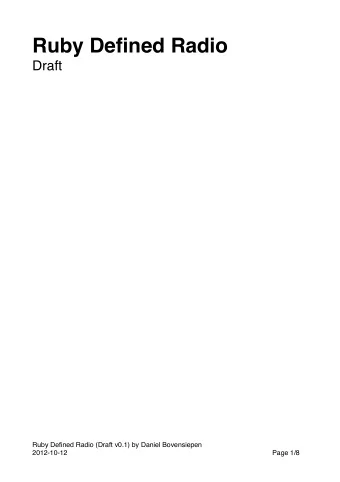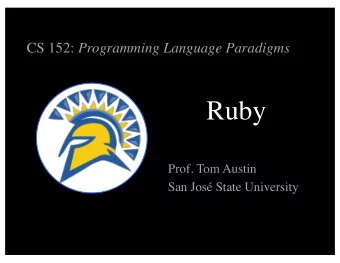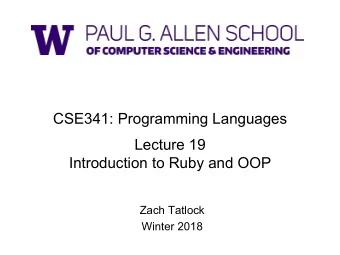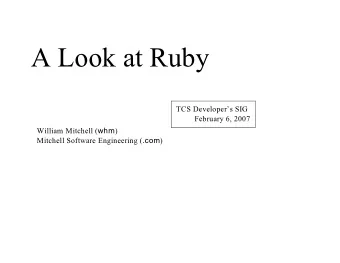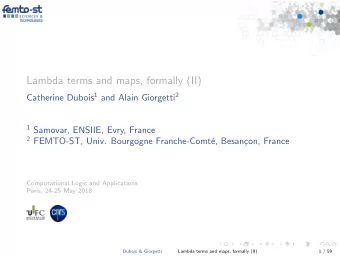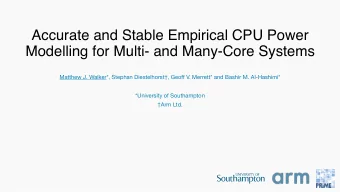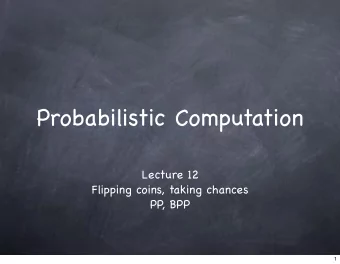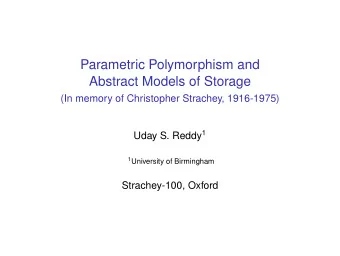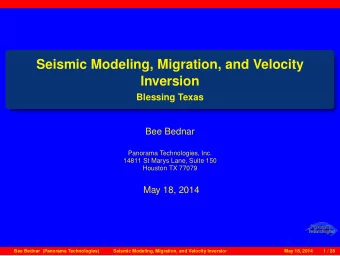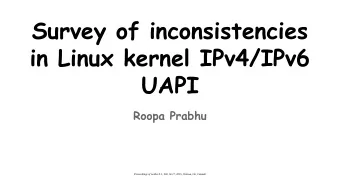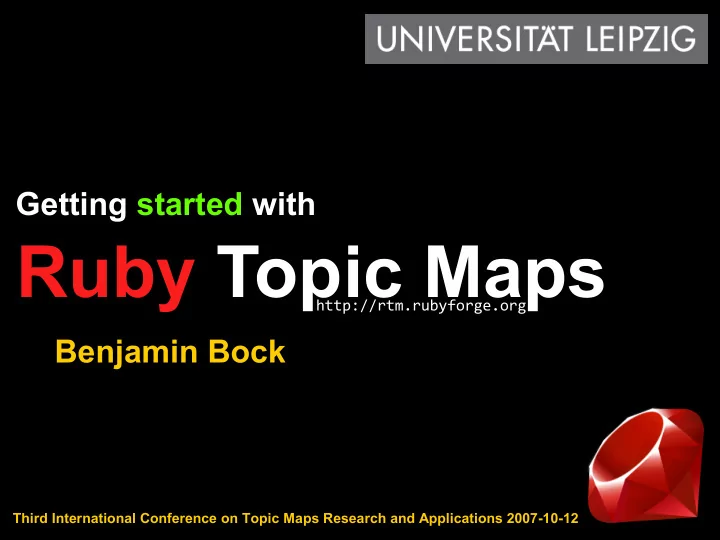
Ruby Topic Maps http://rtm.rubyforge.org Benjamin Bock 1 Third - PowerPoint PPT Presentation
Getting started with Ruby Topic Maps http://rtm.rubyforge.org Benjamin Bock 1 Third International Conference on Topic Maps Research and Applications 2007-10-12 Schedule Ruby, Rails and RTM Real Source Code Scalability and
Getting started with Ruby Topic Maps http://rtm.rubyforge.org Benjamin Bock 1 Third International Conference on Topic Maps Research and Applications 2007-10-12
Schedule Ruby, Rails and RTM Real Source Code Scalability and Performance 2
Introduction Web 2.0 is about integration Ruby and Ruby on Rails are Big Players there Topic Maps nonexistent in the Ruby world 3
Why Ruby? interpreted, object-oriented programming features procedural and functional paradigm dynamically and/but strongly typed 4
Ideas behind RoR Optimized for programmer happiness Writing beautiful source code Convention over Configuration 5
Goals of RTM Usable out of the box Direct access Type less, reach more 6
Current Status Quick & easy installation Ready for use memory and database back-end XTM 2.0 import and export 7
Internal Structure Back-end based on Active Record Main implementation is a wrapper layer Mixed-in modules for serialization, merging, extended API 8
API Gimmicks Direct use of String references to Topics Enumerable Sets provide query language Zero overhead command shortcuts 9
Schedule Ruby, Rails and RTM Real Source Code Scalability and Performance 10
Loading # loading the Ruby Topic Maps library require 'rtm' # Connecting to a back-end RTM.connect # Memory RTM.connect_mysql("database_name", "user_name", "password", "host") 11
Initialisation # generate database schema RTM.generate_database # enable SQL statement logging RTM.log # create a TopicMap tm = RTM.create "http://tmra.de/tm1/" 12
Creation # create a new Topic t = tm.create_topic # create a new Association a = tm.create_association # create AssociationRoles r = a.cr "player", RTM ::PSI[:type] 13
Navigation # get a (random) TopicName n = tm.get!("player").names.first # get all scoped Variants of the first scoping Topic found vs = n.scope.first.scoped_variants # get array of Variant values vs.map {|v| v.value} 14
Querying # Get all Topics without name nn = m.t.select {|t| t.n.size == 0 } # Get all Association types ti = m.a.map {|a| a.type }.uniq # oblige Robert Barta m.t.each {|t| t.v.each {|v| if v.datatype == PSI[:string] t.cn v.p.to_hash.merge(v.to_hash) else t.co v.p.to_hash.merge(v.to_hash).merge( :type => PSI[:variant_name]) end v.remove 15 }}
Import and Export # Import an XTM 2.0 file RTM.from_xtm2(io_stream, "base_locator") # Export a complete topic map xml_string = m.to_xtm2 # Export other formats m.to_jtm; m.to_yaml; … 16
Schedule Ruby, Rails and RTM Real Source Code Scalability and Performance 17
Yes, but... does it scale? Speed? NO! unfortunately not (yet) Scaling manpower! Big optimization potential. 18
Performance SQLite3: 100 Topics in 13s (committing each ) Memory: Creates 10,000 empty Topics in <30s 10,000 empty Associations in <20s 300KB XTM 2.0 takes 45s to import 19
Schedule Ruby, Rails and RTM Real Source Code Scalability and Performance 20
Outlook Needs to prove itself in real life Higher Level API in sight Community wanted! http://rtm.rubyforge.org 21
Thank you! Questions? 22
Recommend
More recommend
Explore More Topics
Stay informed with curated content and fresh updates.
